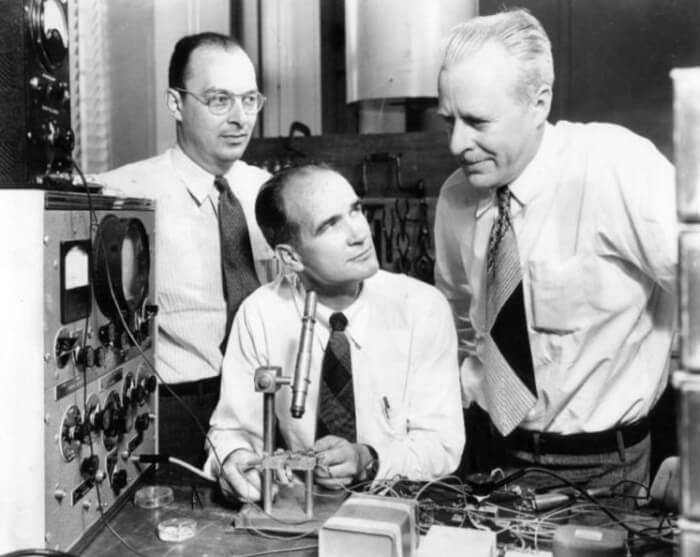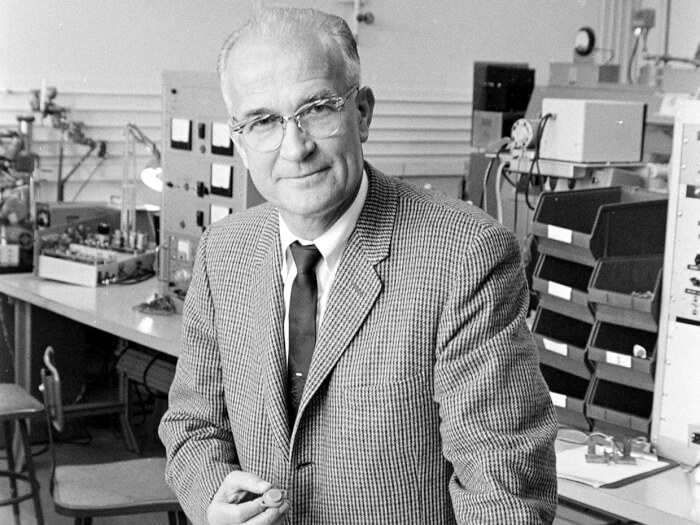The Company Hired 60 Of World's Smartest As Staff Collapsed Quickly, What Is The Reason?
 Source: IEEE Spectrum
Source: IEEE Spectrum
A Company Led By A Nobel Genius
William Shockley, a genius who had led Bell Lab to in the semiconductor project, had a hard time leading other brilliant scientists and engineers. Receiving the Nobel Prize in 1956 along with John Bardeen and Walter Brattain, he founded Shockley Semiconductor, recruiting 60 of the most intelligent people in the world.Shockley is domineering and gives no reasons for his decisions, commanding his people by sole intelligence. He paid no attention to his subordinates’ report; instead, writing all by himself.
There was a time when Shockley asked a group of young scientists to publish his written study in a journal in his name, implying that they weren’t able to conduct such a qualified study.
 Source: Wired
Source: Wired
These eight engineers went on to found the most famous computer companies in the industry, such as Intel, Advanced Micro Devices, and National Semiconductor.
If Shockley hadn't been so conceited and arrogant, these people wouldn't have walked away, and Shockley Semiconductor, rather than Intel, might have been the one who manufactured the chips in the computer that make up these words.
William Shockley’s case is a great evidence for the fact that when a genius leads another, his decision-making might be governed by a self-eccentric mentaility.
Why aren’t leaders always the most intelligent
 Source: Medium
Source: Medium
Intelligent people tend to cripple their ability to make decisions by devaluing anything they don't know. On the contrary, things beyond interests can be easily observed by a non-genius.
Intellectuals tend to find it difficult in seeing external problems as they dig deep into the issue, as their primary focus is always on the inside. However, a non-genius person has better balance and a broader perspective on the problem the team is solving.
A great leader should identify the problems for the members, instead of finding a solution himself. The reason they can lead the intelligent is because they are not geniuses.
Smart people tend to tell others what needs doing when leading a project. They can’t resist forcing everyone to do what they consider ‘the best way’ just because they know more than others.
They think the project will fail until all the work has been defined for all members and believe their assumptions to be true.
Drawing out the conclusion
 Source: IGD Leaders
Source: IGD Leaders
Smart people often fail to see the whole picture, because the "hyper-focused" characteristic makes them only able to see a single problem, leading them to favor their opinions over others.
A genius can explain the reasons for the prioritization of his opinion; however, indiscriminately applying the same reasons to all projects can lead to a completely diverted strategy decision.
By imposing these reasons without distinction, a genius prioritize his opinion without even realizing it.
Geniuses are also incapable of judging their own work well. Instead of acknowledging the failure of a project early on to allocate the resources to others, they may view the problem at hand as overimportant because it is their own opinion.
They are more likely to continue pouring in time and money, far beyond the actual value of the project.
Smart leaders often place more emphasis on what they prefer than what the market prefers. This approach makes it impossible for them to decide what is commercially successful, because they think the public isn't as smart as they are.
H/T: Los Angeles Times (latimes.com)
Share this article
Advertisement